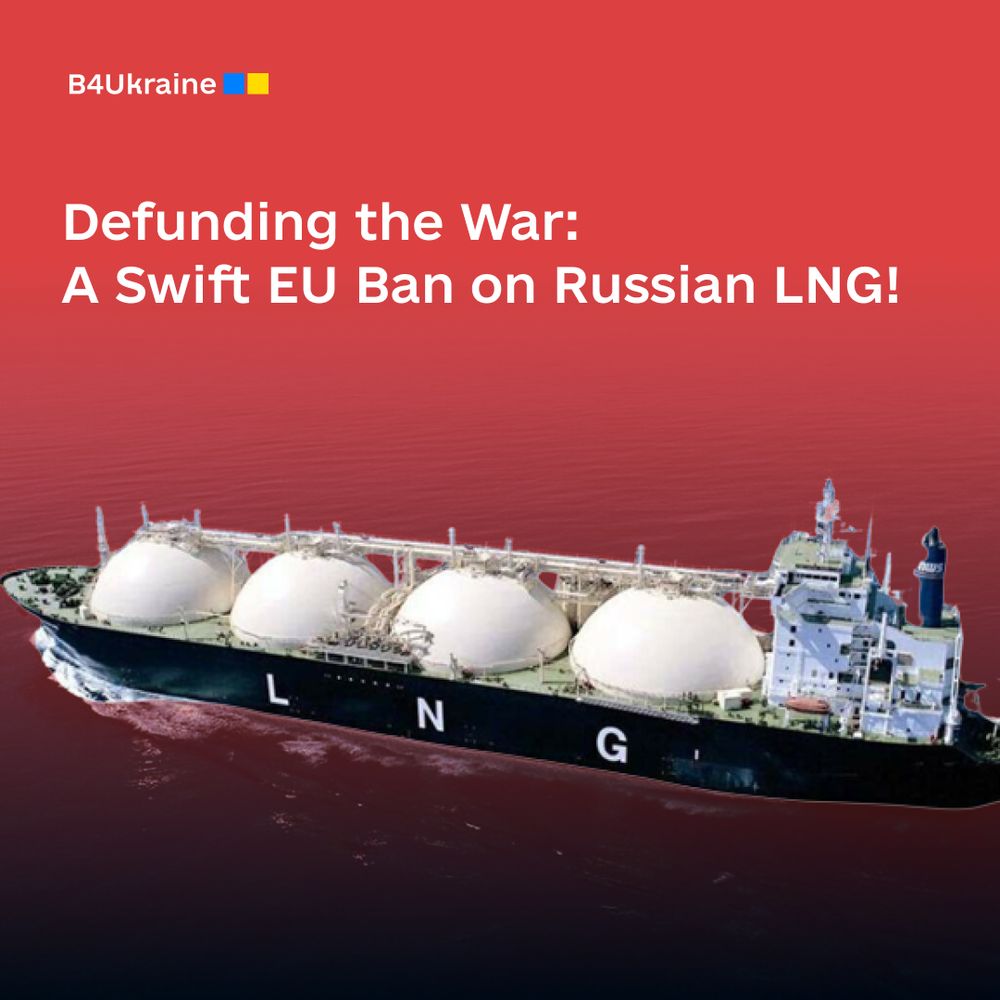
When Russia launched its full-scale invasion of Ukraine in 2022, many experts predicted that the Russian economy, weakened by sanctions, would be too fragile to sustain a prolonged war. However, now in the third year since the full-scale invasion, it is evident that Russia – despite being one of the most sanctioned countries in the world – still has enough funds to continue its military aggression in Ukraine and beyond. Therefore, any substantive conversation about Ukraine’s reconstruction and recovery must start with a concrete plan of defunding Russia’s fossil fuel industry. Including a ban on the flow of Russian liquefied natural gas (LNG) into Europe in the next package of sanctions represents a logical next step.
Current situation
Since the start of the full-scale invasion, Russia has earned €610 billion from crude oil, oil products, pipeline gas, and LNG (Liquefied Natural Gas). This sum is more than ten times the size of the latest long-awaited assistance package for Ukraine from the US, which amounted to $61 billion. Additionally, it surpasses by more than three times the combined aid that Ukraine received from North America, Europe, and Asia since the beginning of the war, totaling $178 billion.
These massive Russian earnings are enabled by poor sanctions enforcement and various loopholes that Moscow has been successfully using to its advantage.
Sanctions Loopholes
A “refining” loophole allows crude oil, transported out of Russia and refined into petroleum products such as gasoline or diesel by third countries (i.e. India, Turkey, or China) to “lose” its Russian origin. The price-cap coalition countries are, therefore, legally allowed to import refined products originating from the Russia crude. The main issue with this loophole is that it boosts the demand for Russian crude, facilitating increased sales both in volume and price.
Furthermore, Russia managed to create the so-called “shadow” fleet by purchasing old tankers that were supposed to be decommissioned. This fleet, consisting of over 1,400 old and uninsured tankers with opaque ownership is used to transport Russian oil. It enables the Kremlin to export its oil from domestic ports to other locations at a price level above the established price cap of $60 per barrel. The shadow fleet also represents a looming environmental disaster for Europe and the world. The clean-up cost operation and compensation resulting from an oil spill from tankers could fall on the coastal country taxpayers in the region of over one billion euros.
Despite the restrictions imposed by the EU on Russian oil exports, there are currently no limitations preventing the Kremlin from delivering its LNG to European ports and the rest of the world. The completion of a significant LNG project, Arctic LNG 2, not only enhances the Kremlin’s ability to fund its wartime budget but also represents a significant environmental threat, described as a “major carbon bomb” by one of B4Ukraine’s members Razom We Stand.
Why EU Ban on Russian LNG is a Logical Next Step
In 2023, the value of Russian LNG exports to the EU was 50% higher than in 2021, before the invasion of Ukraine. Belgium, France, and Spain were among the European countries importing the largest amounts of Russian LNG, collectively accounting for almost 90% of the EU’s imports in 2023.
According to CREA, a B4Ukraine’s partner, in the first four months of 2024 the EU bought 18% more Russian LNG than in the same four month period of 2023.
However, Russia is heavily dependent on the EU markets for its exports of LNG. In 2023, half of all the natural gas that Russia sold to other countries went to Europe. This accounted for only 5% of Europe’s total gas consumption.
Russia is also dependent on the EU as a market for LNG and as a transshipment point for world markets. The largest Russian LNG installation Yamal is particularly dependent, with 82% of all of its exports between February 2022-2024 going to or via EU ports. This provides the EU with significant leverage against Russia, making it possible to impose a full ban on Russian LNG.
If the bloc is to succeed in their RePower EU plan to end reliance on Russian fossil fuels by 2027, it must implement a swift ban on Russian LNG that could cut Russia’s revenue by €632 mln per month. Additionally and importantly, the EU and the rest of the G7 countries must close the “refining” loophole and tackle Russia’s “shadow fleet” and its looming environmental disaster.